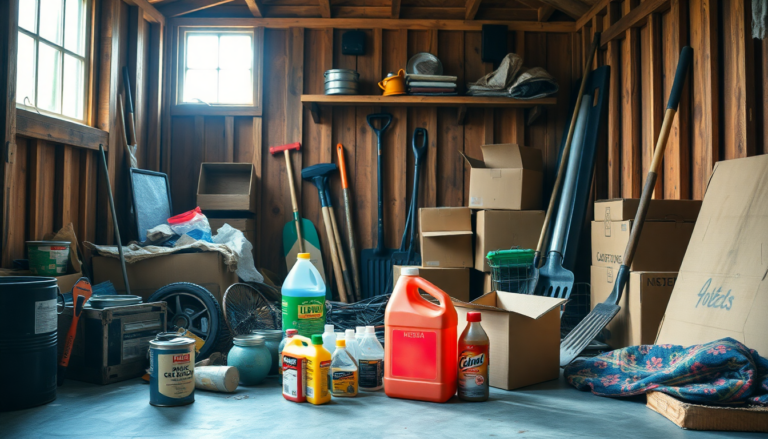Argomenti trattati
While a shed can be a convenient solution for extra storage, have you ever thought about what really belongs there? Not everything is safe to keep in a shed—some items could pose safety risks, damage your belongings, or attract unwanted pests. To help you figure out what to keep out of your shed, we spoke with storage expert Gary McCoy, who shared his insights on items you should never store there and what alternatives you might consider.
Understanding the Risks of Improper Storage
When you’re deciding on where to stash your stuff, it’s crucial to recognize that some items can be downright hazardous if stored incorrectly. Take paints and solvents, for example. These products are incredibly sensitive to temperature changes. As McCoy points out, “They can freeze in cold weather or overheat and separate in high heat.” For this reason, it’s best to keep them in a climate-controlled space, like a utility closet, basement, or a dedicated cabinet in your garage that protects them from extreme conditions.
Another item that requires your attention is propane tanks. McCoy is clear: “These should not be kept in enclosed spaces due to the risk of gas buildup and potential fire hazards.” Instead, propane tanks should be stored outside in a well-ventilated area, standing upright and far away from anything flammable, to keep everything safe.
Protecting Electronics and Perishable Goods
Now, let’s talk about electronics. Storing them in a shed can lead to significant damage over time. Moisture and temperature swings can corrode components or mess with their functionality. “Store them indoors, preferably in sealed, moisture-resistant containers,” McCoy advises. Those airtight containers with gasket seals are a game-changer, adding an extra layer of protection against humidity and temperature changes.
And what about food items? Whether it’s pet food, birdseed, or grass seed, leaving them in a shed can become an open invitation for pests like rodents and insects. McCoy suggests moving these items to your garage or pantry, using sealed metal or heavy-duty plastic containers with locking lids to keep pests at bay and preserve the contents effectively.
Preventing Mold and Mildew
Items like towels, rugs, or paper products are also a bad fit for shed storage. They’re prone to mold and mildew, especially in damp conditions, and can become cozy nests for critters. Instead, McCoy recommends storing these items in extra closet space or in sealed totes. Keeping these materials dry is essential for maintaining their quality and extending their lifespan.
In summary, while it might be tempting to use your shed for all kinds of storage, being selective about what you keep there is crucial for preventing hazards and protecting your belongings. By following these expert recommendations, you can create a safer and more organized space in your home. So, what will you choose to store wisely?

